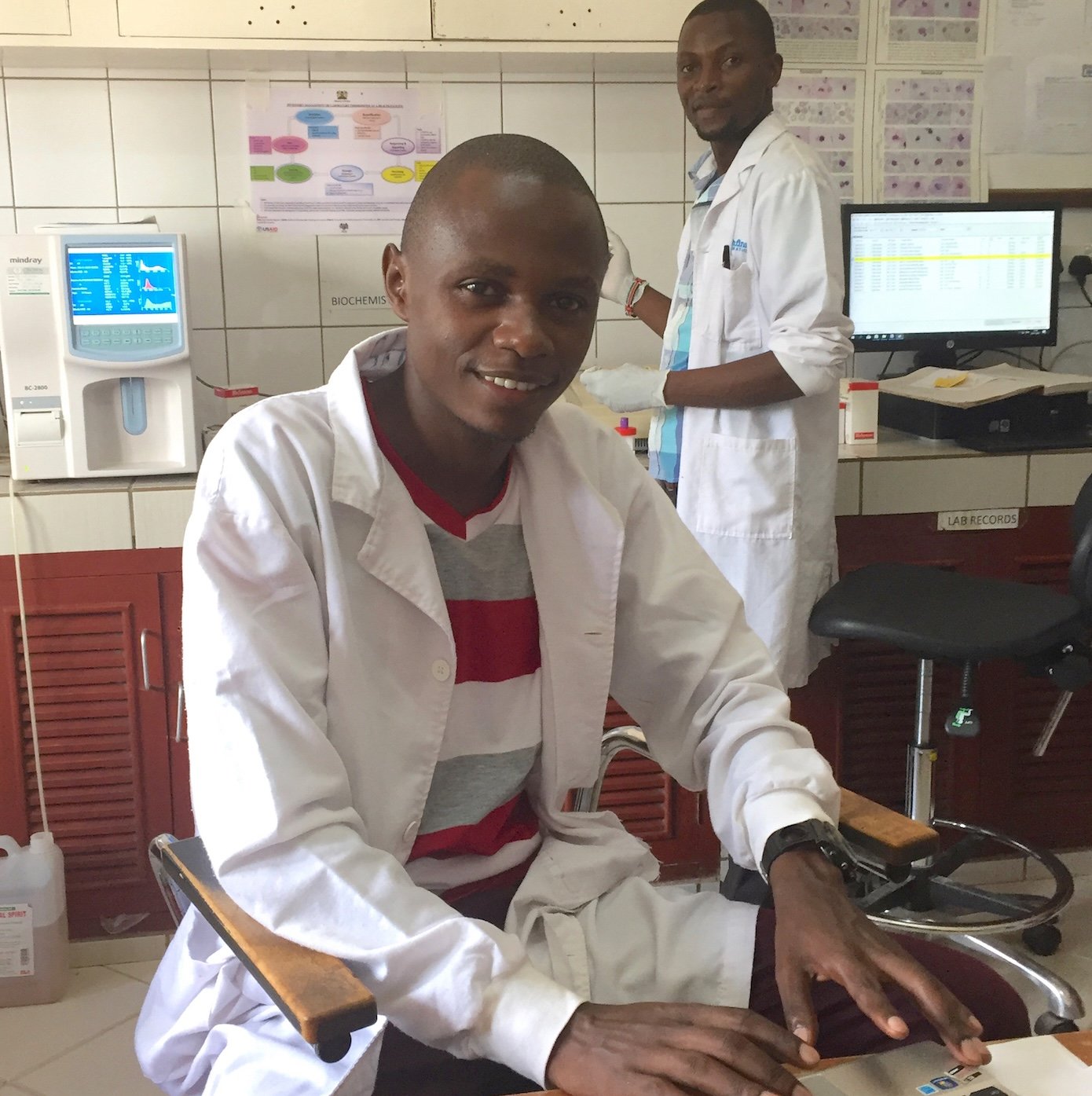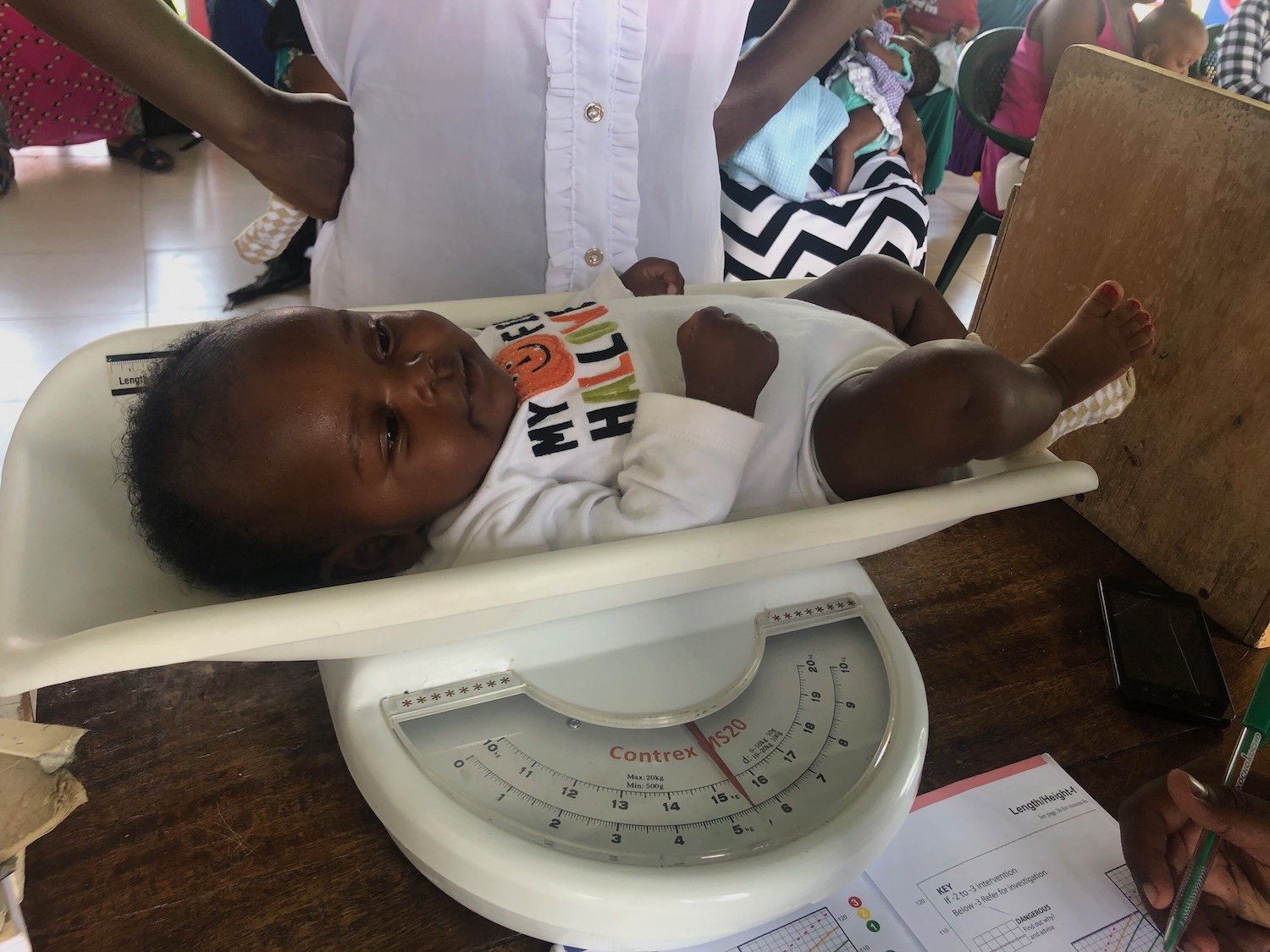Kinondo Kwetu Hospital
Kinondo Kwetu clinic was established in November 2008, to meet the strong need for basic health care, treatment of malaria, HIV, parasites, ante-natal care, deliveries, child care, vaccinations and health information. Before it started its operations, the people in Kinondo villages did not have access to affordable care other than what was provided by traditional medicine men.
The clinic has developed into a level 4 hospital, meaning that all surgery, except on heart and brain, is done at the facility. About 110 persons work at Kinondo Kwetu Hospital.

Harrison Kaingu, Hospital CEO

Opening hours are 24/7 all year

A very well equipped laboratory

The hospital has two surgical rooms

A visitor to the Child Welfare Clinic

Twice a week is vaccination day
About 128 000 patient visits were attended to in 2024. The staff amounts to 110 persons and the operation is lead by Harrison Kaingu, who started as chief laboratory officer in 2008, when the facility opened.
16 years of operation
At Kinondo Kwetu Hospital, the people in Kinondo have access to affordable quality health care. About 4 deliveries are assisted per day. All children in Kinondo villages are now immunized. About 980 HIV-positive patients get regular treatment, as well as TB- and diabese patients. In contrast to before 2008, no patient dies from malaria, unless there are other complications.
Affordable quality care
Thanks to donations, Kinondo Kwetu’s laboratory is well equipped. It offers services to other health facilities in the earea. That surplus gives a welcome contribution to the hospital’s work.
Laboratory
2014 patient visits
In the last quarter of 2024, patient visits went down in the last quarter, as a result of a general and nationwide confusion about the new health insurance system that was introduced October 1st. However, we see that the required adaptions of the insurance system are gradually coming into place ant that patients are coming back to Kenyan hospitals in 2025.
The TBA:s (Traditional Birth Attendants), do an important work. Before Kinondo Kwetu Hospital started its operations as a clinic in 2008, they were the midwives that assisted the mothers at their deliveries, at home, where the conditions put mother and child at risk. At that time, the mortality rate among mothers and babies was high. The challenge was to get the pregnant women to come to the clinic for antenatal care and delivery. It is easy to understand that this was not in the interest of the TBA:s, who feared losing their livelihood. So there was a strong resistance.
Now, they are working for Kinondo Kwetu Hospital, with the task to identify pregnant women in the villages, to bring them to the hospital for antenatal care and to act as birth companions during the delivery. Every first Thursday of the month, they meet at the hospital for information and education.
Unique working model at Kinondo Kwetu Hospital

One of many Traditional Birth Attendants

Traditional Birth Attendants celebrate the hospital's 10th anniversary
